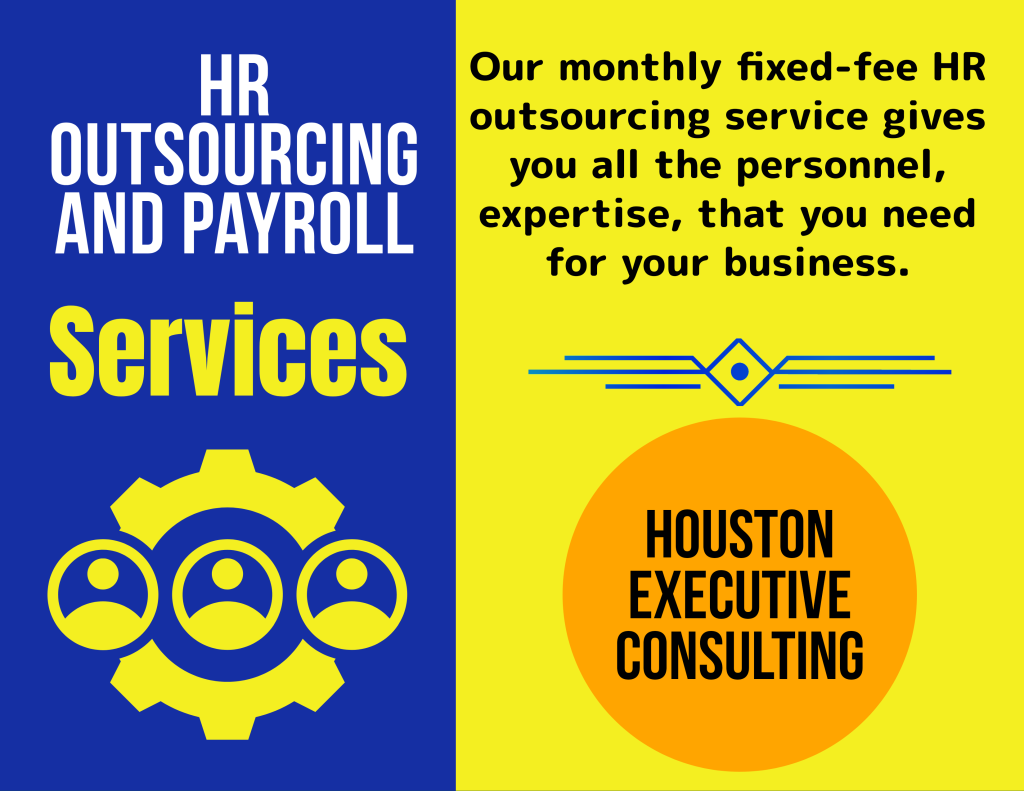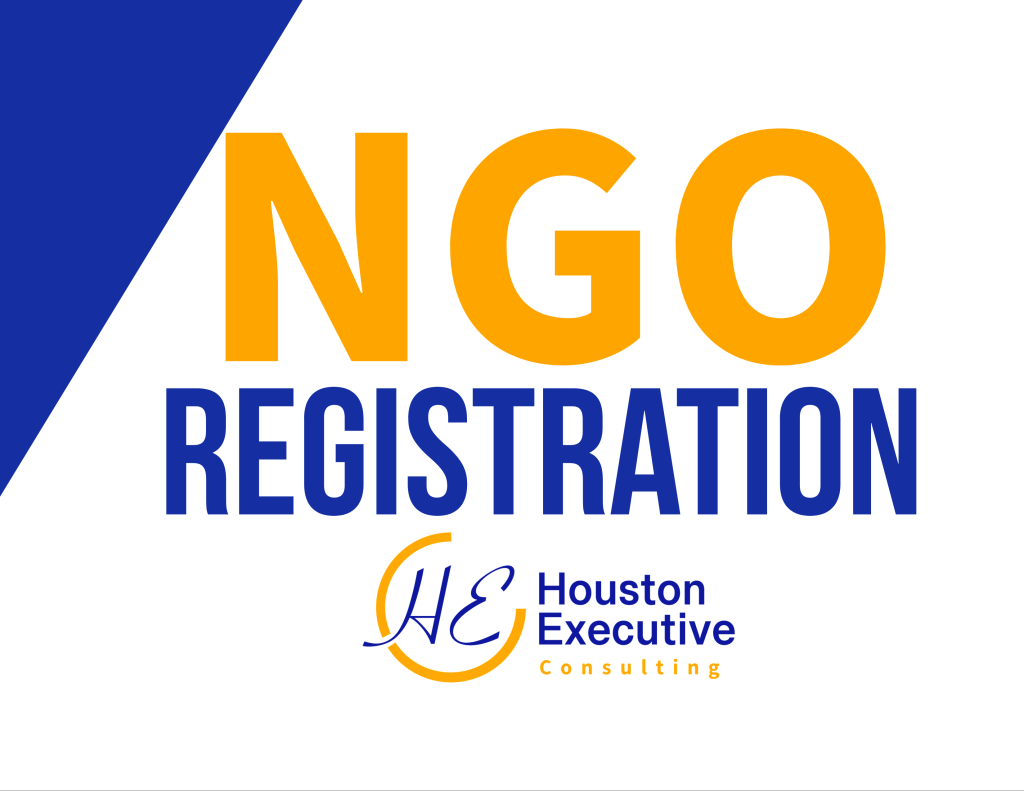20 Proven Strategies to Become an Employer of Choice (Best Global Practices)
Introduction
Becoming an employer of choice means your organization is a top pick for talented job seekers and a place where current employees want to stay. In today’s competitive global job market, being known as an employer of choice is a decisive advantage.
It leads to attracting high-caliber candidates, increased employee engagement, reduced turnover, and a strong reputation within your industry. Companies that achieve this status prioritize their people, creating an environment where employees feel valued, supported, and motivated.
This article explores 20 proven strategies (drawn from best global practices) that can help your company become an employer of choice.
These strategies range from building a positive workplace culture to offering outstanding development opportunities. They are all supported by real-world examples from industries such as IT, healthcare, and finance. Let’s explore how you can transform your workplace into a magnet for top talent.
The following are the 20 Proven Strategies to Become an Employer of Choice (Best Global Practices)
- Cultivate a Positive Workplace Culture
Organizational culture is the heartbeat of any company. A positive workplace culture that promotes respect, trust, and inclusivity makes employees feel comfortable and valued.
People who genuinely enjoy their work environment are more likely to recommend your company to others and stay with it in the long term. According to research, approximately 40% of employees consider corporate culture a crucial factor when selecting an employer.
To cultivate a great culture, encourage open communication, teamwork, and a sense of community among employees. Celebrate diversity and ensure everyone feels included.
For example, tech companies often foster casual, collaborative cultures (open office spaces and cross-functional project teams), while healthcare organizations build supportive team environments to handle high-pressure situations.
No matter the industry, culture sets the tone – make sure yours is upbeat, empathetic, and aligned with your core values.
Provide Meaningful Work and Purpose
Employees are highly motivated when they find meaning in their work. Being an employer of choice means connecting jobs to a larger purpose. Ensure that each team member understands how their role contributes to the company’s mission and its impact on society.
People want to feel that their work matters beyond just making a profit. In practice, this could mean highlighting success stories of how your products or services help others, or involving employees in setting mission-driven goals.
In the healthcare industry, for instance, staff often find purpose in knowing their work saves or improves lives – hospitals that emphasize patient impact tend to have more engaged employees.
In IT and finance, teams might be driven by innovation or by helping clients achieve financial security. Make your mission, vision, and values clear, and show employees the positive impact of their contributions.
Employees develop a sense of pride in their company when their work feels meaningful, which boosts morale and loyalty.
- Ensure Work-Life Balance and Flexibility
Burnout and overwork are enemies of employee satisfaction. Top companies worldwide prioritize work-life balance to maintain a healthy and happy workforce. Offering flexibility in how, when, and where work gets done is a proven strategy to become an employer of choice.
This can include flexible working hours, remote or hybrid work options, and encouraging employees to take their vacation without guilt. Global best practices show that balanced employees are more productive and engaged.
For example, many IT firms allow telecommuting and flexible schedules, recognizing that productivity isn’t about clocking long hours in the office, but rather about delivering results.
Some European countries have legislated “right to disconnect” laws to ensure employees aren’t expected to answer emails outside of work hours, reflecting a cultural commitment to work-life balance.
In the finance sector, which traditionally has very long hours, some forward-thinking companies now enforce caps on working hours or give employees at least one weekend free, acknowledging that rested employees perform better.
If you respect employees’ time and well-being, you demonstrate empathy and trust, making your organization a more attractive workplace.
- Offer Competitive Compensation and Benefits
It’s no secret that to attract and retain top talent, you must pay competitively and offer great benefits. Being an employer of choice means your compensation package meets or exceeds industry standards.
This includes base salary, bonuses, incentives, and non-monetary benefits. Health insurance, retirement plans, paid time off, and other benefits (such as wellness stipends or tuition reimbursement) all contribute to how employees perceive their total compensation.
Conduct regular salary benchmarking to ensure fairness and competitiveness, because employees who feel underpaid will quickly look elsewhere.
In addition to standard benefits, consider innovative perks that cater to your workforce’s specific needs. For example, some tech companies offer free meals, on-site childcare, or stock options; healthcare employers might provide continuing education sponsorships; and finance firms offer employee stock purchase plans or performance bonuses.
The key is to demonstrate to employees that their hard work is recognized and valued, and that the company is committed to investing in their overall well-being. A generous, well-rounded compensation and benefits package signals that you value your people – a hallmark of an employer of choice.
- Invest in Employee Learning and Development
High-performing professionals consistently seek to acquire new skills and advance in their careers. To be seen as an employer of choice, provide ample opportunities for learning and development.
This can range from formal training programs, workshops, and conferences to online courses and mentorship pairings. When employees see that you are investing in their professional growth, they feel valued and are more likely to stay and advance within the organization.
For example, leading IT companies often have continuous learning budgets or in-house academies for their engineers to learn new programming languages or technologies.
Hospitals might offer nurses and doctors ongoing training in the latest medical procedures or support for advanced certifications in healthcare. Financial firms may provide study leave and resources to employees pursuing qualifications such as the CFA or CPA.
Beyond technical skills, focus on developing soft skills and leadership abilities – perhaps through coaching or rotational programs that expose rising stars to various aspects of the business.
This upskills your workforce and creates a talent pipeline ready for bigger roles. The message to employees is clear: you’re willing to invest in their future, which builds loyalty and makes your company a magnet for ambitious talent.
- Create Clear Career Paths and Advancement Opportunities
No one wants to feel stuck in a dead-end job. To be an employer of choice, demonstrate to employees that they have a future with your company. Establish clear career paths and provide internal advancement opportunities.
This involves outlining the skills and accomplishments required to advance up the ladder or into new roles, and helping employees achieve them. Many top organizations prioritize promoting from within—they’d rather develop their current employees for higher positions than hire externally for every leadership role.
Doing so sends a powerful message that hard work and loyalty are rewarded. For instance, a finance firm might have a well-defined path from analyst to senior analyst to manager, or an IT company might allow engineers to progress into senior technical roles or transition into management.
Some companies use individual development plans (IDPs), in which employees collaborate with their managers to map their career goals and outline the steps to achieve them. Also, job rotation programs or stretch assignments should be considered to help employees broaden their experience.
When people see a long-term trajectory for growth, they are more likely to commit their future to the organization. In short, give your employees a vision of how they can evolve with the company, not just in their current job.
- Recognize and Reward Employee Achievements
Recognition is a powerful motivator. Employees want to feel that their contributions are noticed and appreciated. Consistently recognizing employees for good work is one of the simplest and most effective strategies for improving engagement and becoming an employer of choice.
Develop a comprehensive recognition and rewards program that acknowledges both significant achievements and everyday efforts. This could be as straightforward as managers giving a sincere “thank you” or shout-out in a team meeting, or as formal as an “Employee of the Month” award, spot bonuses, or a points-based rewards system for going above and beyond.
The key is to cultivate a culture of appreciation. Different industries approach recognition in ways that fit their environment: a healthcare supervisor might publicly commend a nurse who handled a crisis effectively, while a tech company team lead might give a peer-nominated award to a developer who significantly improved a product feature.
Monetary rewards (bonuses, gift cards, raises) are certainly welcome, but intangible rewards like extra time off or professional development opportunities can also be highly valued.
Remember to tailor recognition to individual preferences – some people love public praise, while others might prefer a personal note. When employees consistently feel valued for their work, they develop a deeper loyalty to the organization and are more motivated to excel.
Foster Strong and Trustworthy Leadership
Leadership can make or break your workplace. People don’t leave jobs; they often leave bad managers. To be an employer of choice, ensure you have strong, trustworthy leaders and managers at every level.
This means leaders who communicate well, act with integrity, inspire their teams, and are responsive to employees’ needs. Invest in leadership development programs to equip those in supervisory roles with the skills to coach, mentor, and motivate their teams effectively.
Great leaders set clear expectations, provide constructive feedback, and support their employees in overcoming challenges. For example, a department manager who regularly checks on team members’ workloads and offers help or resources when they are overwhelmed will earn tremendous respect and loyalty.
In contrast, a manager who is aloof or overly critical will drive talent away. It’s also essential that upper leadership is visible and transparent. Employees appreciate it when executives share the company’s vision and progress, and when they feel personally connected to the organization’s direction.
Think of leaders like Satya Nadella of Microsoft, who transformed the company’s culture by encouraging empathy and learning, or any admired CEOs who emphasize people-centric values.
Building a leadership team that genuinely cares about employees and leads by example will elevate your workplace and strengthen your reputation as a great employer.
- Maintain Open Communication and Transparency
Trust flourishes in an organization where information flows freely and employees are kept informed. Open communication and transparency are essential to being an employer of choice.
Employees perform best when they understand the “why” behind decisions and feel their voices are heard. To foster transparency, share regular updates on company performance, new initiatives, and upcoming changes.
Encourage managers to have open-door policies and hold regular one-on-one meetings where team members can speak candidly. Many global companies hold town hall meetings or Q&A sessions with executives, allowing employees at all levels to ask questions and receive honest answers.
For instance, leaders at some tech firms host weekly all-hands meetings to review key metrics and address employee questions. In healthcare settings, transparency might involve communicating policy changes or procedures, especially during times of crisis, so staff aren’t left in the dark.
Alongside top-down communication, facilitate bottom-up feedback through employee surveys, suggestion boxes, or team brainstorming sessions. When employees see that leadership is honest about challenges and responsive to concerns, it builds credibility.
They feel respected as partners in the organization’s journey, rather than just workers, which significantly boosts morale and engagement.
- Ensure Fairness and Equity in Policies
Fairness is a non-negotiable ingredient of a top-notch workplace. To be regarded as an employer of choice, your company must demonstrate equity and fairness in all its practices.
This means consistent policies that apply to everyone, unbiased decision-making, and equitable treatment in areas like promotions, assignments, and disciplinary actions. Employees quickly become disengaged if they suspect favoritism or double standards.
Make sure your HR policies are transparent and applied uniformly. For example, if your company has rules regarding remote work or expense reimbursements, these rules should apply equally to all employees in similar roles.
Perform regular pay and promotion data reviews to identify and correct any disparities; equal pay for equal work is a fundamental expectation.
Embracing fairness also extends to handling complaints or conflicts. Have transparent processes in place to address grievances, so employees trust that issues will be resolved fairly and justly.
An example of fairness in action is when companies conduct anonymous reviews for internal promotion candidates or use standardized criteria to evaluate performance, minimizing bias.
In the finance and tech industries, where high-pressure environments can sometimes lead to “high performer” cultures that overlook bad behavior, the best employers ensure that even top performers are held accountable to everyone else’s behavioral standards.
When employees see that everyone plays by the same rules and that integrity is upheld, it reinforces a sense of safety and trust in the workplace.
- Embrace Diversity and Inclusion
A truly inclusive workplace is one where everyone, regardless of background, race, gender, age, or any other characteristic, feels welcome and supported. Diversity and inclusion (D&I) isn’t just a corporate buzzword; it’s a vital strategy for companies aiming to be employers of choice.
Diverse teams bring various perspectives and ideas, leading to more innovation and better problem-solving.
Moreover, today’s workforce, especially younger generations, seeks out employers known for inclusive practices. To champion diversity and inclusion (D&I), start with recruiting: actively reach out to diverse talent pools and ensure your hiring process is free from bias.
Then, focus on inclusion daily by respecting different cultures and viewpoints, providing equal opportunities for advancement, and perhaps forming employee resource groups (ERGs) for underrepresented groups to share experiences and offer advice to leadership.
Many global companies set public diversity goals and train managers on inclusive leadership. In the tech industry, for example, companies have been working to increase the representation of women and minorities in engineering roles through targeted programs and mentorship.
In healthcare, having a diverse staff can improve patient care by better reflecting the communities they serve. Inclusion also covers accommodating people with disabilities and offering flexibility for religious or cultural practices.
When you embrace Diversity and Inclusion (D&I), you create a richer workplace culture and send a message that all employees can thrive, which significantly enhances your employer appeal.
Empower Employees and Encourage Autonomy
Micromanagement stifles creativity and morale, whereas empowering employees unleashes their potential. A key strategy for being an employer of choice is to encourage autonomy and trust your team members to do their jobs effectively.
Give employees ownership over their projects and the freedom to make decisions in their areas of expertise. When people have control over achieving their objectives, they tend to be more innovative and engaged.
Empowerment can take many forms, including flattening hierarchies to reduce bureaucratic bottlenecks, delegating meaningful responsibilities (rather than just busywork), and encouraging initiative.
For example, a software company might allow developers to decide which programming methods or tools to use to solve a problem, rather than dictating every step – this trust can lead to new and better solutions. Empowering nurses or support staff to suggest improvements in patient care processes in healthcare can boost efficiency and job satisfaction.
When mistakes happen (as they inevitably do), use them as learning opportunities rather than reasons to revoke autonomy. Companies like 3M famously gave employees time to work on their innovative ideas (resulting in Post-it Notes!), and many tech firms allow employees to spend a portion of their time on self-directed projects.
This kind of empowerment shows you respect your employees’ expertise. The result? Employees feel proud and trusted, and your company gains a reputation for being a place where people can truly contribute and grow.
Prioritize Employee Health and Safety
Especially in the wake of global challenges like the COVID-19 pandemic, employees want assurance that their health and safety are top priorities. No one wants to work for a company that cuts corners on safety or ignores employee well-being.
Develop a robust health and safety culture to establish yourself as an employer of choice. This means maintaining safe facilities (from ergonomic office setups to necessary protective equipment on industrial sites) and adhering to or exceeding health regulations.
It also includes creating a psychologically safe environment—one free from harassment or bullying—where employees feel secure speaking up. For organizations in industries such as manufacturing, oil and gas, or healthcare, demonstrating an excellent safety record and proactive risk management is a significant draw for talent.
Even in office settings, basic things like clean, comfortable workspaces, attention to indoor air quality, and ergonomic furniture can make a difference. Additionally, consider safety in a broader sense: data security and job security can fall under this umbrella, as these factors help employees feel protected.
Communicate safety policies clearly and encourage employees to voice any concerns. When people see their employer taking concrete steps to keep them safe – installing the latest safety equipment, providing safety training, or fostering a respectful workplace – it builds trust and loyalty.
Caring for employee safety isn’t just a legal duty; it’s a cornerstone of a responsible, people-centered employer.
- Support Holistic Employee Well-Being (Physical and Mental)
Beyond basic health and safety, the best employers recognize the importance of holistic well-being, supporting employees’ physical, mental, and emotional health. Work can be stressful, and if employees are constantly drained, it’s hard for them to stay engaged or recommend your company to others.
Addressing well-being can take many forms. On the physical side, some companies offer wellness programs, including subsidized gym memberships, yoga or fitness classes, healthy snacks in the office, and even on-site health checkups.
Mental health is equally critical; destigmatize it by openly discussing stress and burnout and offering support. Provide access to Employee Assistance Programs (EAPs) or counseling services, so employees have a resource to turn to if they are struggling.
Some organizations have implemented “mental health days” – occasional extra days off for rest and recharge. Others bring in experts for stress management or mindfulness workshops. For example, a global finance firm might hire a wellness coach to conduct resilience training after a busy quarter, or an IT company might give everyone a week off as a company-wide reset (something several large firms have done to combat burnout).
Encouraging employees to care for themselves and ensuring managers respect that (like not expecting replies to emails late at night) goes a long way.
When people see that their company cares about their well-being, not just their output, they develop a deep sense of loyalty and positive word of mouth that enhances their employer brand.
- Leverage Technology to Enhance the Employee Experience
Modern employees, especially in tech-savvy fields, expect their employers to provide efficient tools and systems. If your workplace is bogged down by outdated technology or tedious manual processes, it can frustrate employees and even drive them away.
Conversely, using advanced technology to make work easier and more engaging can set you apart as an employer.
This might include collaboration and communication tools (like project management software, instant messaging platforms, or
You can utilize video conferencing technology that seamlessly facilitates remote work, automates routine tasks (reducing drudgery and errors), and provides user-friendly HR systems (for functions such as leave requests, benefits enrollment, or feedback surveys).
For example, an innovative IT firm might allow employees to choose their preferred laptops or development tools and utilize AI to handle repetitive coding tasks, thereby freeing engineers to focus on creative work.
A hospital might implement state-of-the-art patient record systems to reduce paperwork for staff, letting them focus more on patient care. Even something as simple as a mobile app for employees to check their pay stubs or schedule can improve daily satisfaction. Embracing technology also signals that your company is forward-thinking and innovative, qualities that attract talent.
Additionally, consider how technology can support learning (through e-learning platforms), recognition (social recognition apps), and flexibility (cloud-based tools for work-from-anywhere).
Modernizing the employee experience demonstrates that you’re invested in your people’s productivity and comfort – a hallmark of a great employer.
- Provide a Positive Candidate and Onboarding Experience
Becoming an employer of choice doesn’t start on an employee’s first work anniversary – it begins from the very first interaction a person has with your company. That’s why a positive candidate experience and onboarding process are crucial.
Treat your job applicants respectfully, communicate promptly, and make the hiring process as smooth as possible. Even candidates you don’t hire should walk away feeling fairly treated and impressed by your professionalism (they might be future candidates again or refer others).
Many companies overlook the fact that candidates often share their experiences online; a poor interview process can damage your reputation. Once you hire someone, a welcoming and organized onboarding can make a difference in how they perceive their new employer.
Ensure a new hire’s first days or weeks are well-structured: have their workspace or equipment ready, assign a buddy or mentor to help them settle in, and provide a clear onboarding schedule that covers training and introductions to key people.
In the IT industry, for instance, new hires might be given a week of orientation to familiarize themselves with systems and culture before diving into code. In any field, simple gestures like a welcome package or team lunch on day one leave a lasting positive impression.
A thoughtful onboarding process shows that your company is well-run and caring. When newcomers quickly feel like part of the family, they will likely share that positivity with their network, further boosting your employer-of-choice reputation.
- Engage in Corporate Social Responsibility and Community Initiatives
Modern employees often want their work to connect with a greater good. Companies that demonstrate corporate social responsibility (CSR) and community involvement are usually perceived as more attractive employers.
Being an employer of choice means caring not only for your employees but also for society. Whether it’s environmental sustainability efforts, charity work, or supporting local communities, these actions improve your brand image and give employees a sense of pride.
Consider implementing programs that allow employees to volunteer or contribute to causes. Some businesses offer paid volunteer days, match charity donations, or organize company-wide community service events. For example, a firm might partner with a non-profit for an annual day of service where all staff can participate, or an IT company could run coding workshops for underprivileged youth in the community.
Environmentally conscious practices, like committing to carbon neutrality or reducing waste in the office, also resonate with employees who value sustainability. These initiatives make employees feel that by working for you, they are also indirectly giving back to the community.
Additionally, celebrate and publicize these efforts – it’s not about boasting but showing that your company stands for more than just profit. Employees often cite a company’s values and social impact as reasons for joining or staying with the organization.
Integrating CSR into your culture will attract like-minded talent and foster stronger emotional connections among employees with your organization.
- Build and Maintain a Strong Employer Brand and Reputation
Your employer brand is essentially your reputation as a workplace, and it plays a huge role in becoming an employer of choice. Top companies deliberately manage their employer brand by highlighting their workplace culture, employee success stories, and unique perks across various channels.
Ensure that your company’s values and positive attributes are reflected on your website, social media, and platforms such as LinkedIn or Glassdoor. Potential hires will research you, and what they see should reinforce that your organization is a great place to build a career.
Encourage satisfied employees to share their experiences, whether through testimonials, referrals, or online reviews. Some global employers participate in “Best Place to Work” surveys and award programs; making those lists can significantly boost your reputation and visibility.
However, authenticity is key: Your image must match the reality inside the company, or you’ll quickly lose trust.
Monitor what’s being said about your company in reviews regularly and address concerns (for instance, if feedback shows issues in work-life balance, take steps to improve and let the public know about those improvements).
A strong employer brand also involves external marketing: participate in industry events, university career fairs, and professional associations to get your name out there. Over time, a well-cultivated employer brand means that when people hear your company’s name, they immediately associate it with positive employment qualities – and that’s when you truly become an employer of choice.
- Foster a Fun and Engaging Work Environment
Workplaces that incorporate a bit of fun tend to have higher employee morale and camaraderie. Being professional doesn’t mean being serious 100% of the time.
The companies that many people love to work for often have a vibrant atmosphere where laughter and enjoyment are part of the culture. This can be as simple as team celebrations for hitting goals, casual Fridays, or friendly competitions and games.
Many industries have found creative ways to make work fun. An IT startup might include a game room or host regular hackathons and innovation days where employees can freely experiment.
A healthcare company might offer stress-relief activities, such as group fitness challenges or social events, to help staff unwind after a tough week. Corporate offices may hold themed days or office parties to break the routine.
Encouraging employees to personalize their workspaces or organizing off-site team-building retreats can add energy and engagement to the environment. The goal is to humanize the workplace—people aren’t robots, and adding levity and celebration can make an organization stand out.
When employees enjoy their work and the workplace, they form stronger connections with colleagues and feel more loyal to the company. A fun workplace is where people say, “We work hard, but we also enjoy ourselves.” That balance can be a decisive advantage when attracting and retaining top talent.
Provide Job Security and Stability
In uncertain times, job security becomes incredibly valuable. While no company can guarantee lifetime employment, employers of choice strive to create stability and communicate honestly about the business’s health and employees’ futures.
If people constantly fear layoffs or feel the company is on shaky ground, stress levels spike, and top talent will be reluctant to join or stay. To address this, share the company’s long-term strategy and how employees contribute to its success, so they feel a sense of stability and security.
During downturns or challenges, be transparent about how the company navigates the situation. Consider alternatives to layoffs whenever possible – could you reskill and redeploy staff to different areas, or temporarily scale back hours as a last resort? Showing your commitment to your employees’ job security earns deep loyalty.
Additionally, build a reputation for keeping your word with employees. If you promise growth or raises when certain milestones are hit, follow through. Reliability is a form of security; employees want to know they can trust leadership.
For example, some global companies are known for never laying off staff, even during recessions, opting instead to cut executive pay or freeze hiring. These companies often enjoy fierce loyalty in return.
Even if your industry is volatile, handling tough decisions with compassion (such as providing generous severance and placement help if layoffs happen) will set you apart.
Ultimately, when employees feel stable in their jobs, they can focus on doing their best work, and they’ll tell others that your company is a dependable, great place to work.
Conclusion
Becoming an employer of choice is not an overnight task – it’s a continuous commitment to excellence in treating and empowering your people. The 20 strategies above provide a comprehensive roadmap covering culture, compensation, growth opportunities, leadership, and more.
By implementing these best practices, organizations in any industry can enhance their workplace and differentiate themselves as ideal employers. Remember that genuine change comes from the top: company leaders must champion and weave these efforts into the company’s policies and everyday behaviors.
When done right, the payoff is immense. You attract talent that drives your business forward and retain experienced employees who feel engaged and motivated. Your organization’s reputation will soar as a place where people thrive.
If you’re looking to transform your workplace into an employer of choice, Houston Executive Consulting can help. We specialize in HR strategy and organizational development, assisting businesses to implement global best practices in a way that aligns with their unique culture. From enhancing leadership skills to revamping HR policies, our experts will guide you in creating an environment that fosters employee excellence.
Contact Houston Executive Consulting today to learn how we can support your journey to becoming an employer of choice.
FAQs
Q: What does it mean to be an “employer of choice”?
A: Being an employer of choice means your organization is beautiful to current and potential employees. In other words, people actively want to work for your company (and stay once hired) because of factors like a great culture, competitive pay, growth opportunities, and overall employee satisfaction. An employer of choice typically has low turnover and a strong reputation, often appearing on “best places to work” lists. It’s a status earned by taking excellent care of employees and creating a workplace where talent thrives.
Q: Why is workplace culture crucial for becoming an employer of choice?
A: Culture is how it feels to work at your company – the everyday atmosphere and values in action. A positive workplace culture boosts employee morale, collaboration, and productivity. When the culture is good, employees feel respected and part of a community, which makes them happier and more likely to stay. Conversely, even high salaries might not keep people if the culture is toxic. Many job seekers today prioritize culture, seeking workplaces that align with their values and promote their well-being. A strong, positive culture is a cornerstone for being an employer that people choose over others.
Q: How can a small company become an employer of choice?
A: Small companies can become employers of choice by focusing on the quality of the employee experience. While you might not match a big corporation’s budget for lavish benefits, you can create a family-like, inclusive culture, offer flexible work arrangements, and provide individualized career growth.
Often, small businesses have the advantage of a tight-knit environment where everyone’s contributions are visible. A small company can build strong loyalty by recognizing achievements, communicating openly, and being fair and supportive. Competitive pay remains essential, but many candidates are drawn to the personal touch and development opportunities that smaller employers offer. In short, play to your strengths – agility, community, and creativity – to stand out as a great workplace.
Q: What role do managers and leaders play in achieving employer-of-choice status?
A: Leaders and managers play a critical role. They are the ones who implement and embody the company’s values on a day-to-day basis. A company can have wonderful policies on paper, but an employee will likely be unhappy if a direct manager is ineffective or unsupportive. Good managers coach their teams, recognize effort, communicate transparently, and show empathy. They help build the positive culture and trust we’ve talked about. Executives also set the tone by prioritizing people-centric strategies and leading by example (taking work-life balance seriously). When leadership is aligned to be an employer of choice, initiatives such as recognition programs and development plans take root. Essentially, leaders are the champions of all these strategies – without their genuine buy-in, becoming an employer of choice is very difficult.
Q: How long does it take to become an employer of choice?
A: It’s a gradual journey rather than a quick fix. Depending on your starting point, it could take months to a few years to see a significant transformation in how your employees and the job market perceive your company. You might start noticing improvements in employee engagement or lower turnover within the first year of concerted effort.
However, achieving external recognition (like awards or a strong reputation) might take longer because people will be watching to see sustained commitment, not just one-off changes. The key is consistency and continuous improvement—regularly gathering feedback, making changes, and communicating progress. Every step you take towards bettering the employee experience will help, and over time, these steps compound. Even after reaching “employer of choice” status, companies must maintain those practices because slipping backward is always possible if focus is lost.
Q: How do you measure success in becoming an employer of choice?
A: There are several indicators to watch. Internally, you can measure employee satisfaction and engagement through surveys – if those scores are rising, it’s a great sign. Tracking your employee turnover rate is also essential; a decreasing turnover rate (mainly due to voluntary departures) suggests that people want to stay.
Other measures include the number of referrals (employees recommending friends to join is a vote of confidence) and tracking internal promotions (are people growing within the company?). Externally, success might be reflected in improved quality of job applicants, higher offer acceptance rates, or recognition through awards and rankings (e.g., being listed in a “best places to work” list or high ratings on Glassdoor). Ultimately, the accurate measure is in talent attraction and retention. When you seldom lose good people to competitors and consistently draw great candidates, you know you’re seen as an employer of choice.
Q: Is a high salary enough to become an employer of choice?
A: While competitive pay is a fundamental factor (and no company can ignore it), salary alone isn’t enough to sustain an employer-of-choice reputation. Many employees might join for a high salary, but if other aspects of the job are negative – poor management, no work-life balance, toxic culture – they won’t stay long or sing the company’s praises to others.
Think of salary as one leg of a stool; the other legs are factors such as culture, growth opportunities, and work environment. All need to be strong to support employee satisfaction. Studies have shown that after a certain point, incremental pay increases have a diminishing impact on happiness compared to factors such as being appreciated or having a good work environment. So, yes, pay well, but invest in the full spectrum of employee experience if you want to be an employer of choice.
Q: Can offering flexible work options make a difference?
A: Absolutely. Flexible work options—flexible hours, remote work, or other arrangements—have become highly sought after. They enable employees to balance their professional and personal lives better, thereby reducing stress and burnout. When a company is flexible, it signals trust in employees to manage their time and responsibilities. Many choose a job that offers flexibility over one that doesn’t, even if the pay is a bit less, because the day-to-day quality of life is better.
Over the past few years, especially with the rise of remote work technology, flexibility has shifted from a nice-to-have perk to a key component of being a great employer. It also widens your talent pool – you can recruit talent from different locations or retain working parents and others who need that flexibility. Incorporating flexible work arrangements can significantly boost your appeal as an employer and enhance the satisfaction of current employees.












